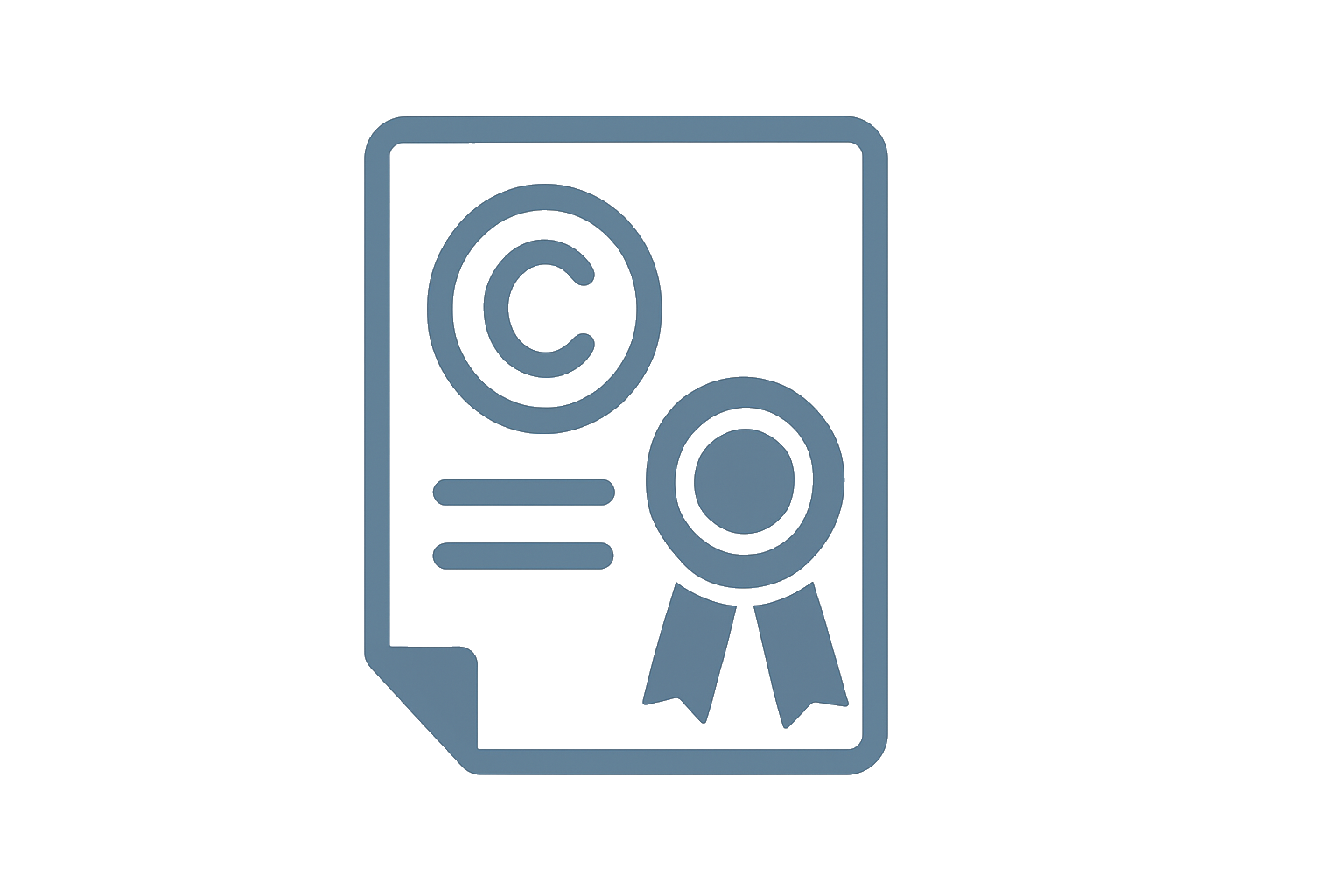📌 Quick Summary
1-Sentence Answer
Want to protect your creative genius without emptying your pockets? The cheapest ways to get a copyright are filing yourself, using DIY legal services, or hiring a budget-friendly attorney.
The Article Overview
This article explores three wallet-friendly ways to copyright your creative work, answers burning questions, breaks down each step, debunks common myths, and shows you how small businesses can guard their content—without needing a second mortgage.
❓ Common Questions & Answers
Q1: Do I have to pay big bucks to copyright my work?
Nope! The U.S. Copyright Office charges a modest filing fee if you file yourself, and there are even more budget-friendly options if you’re willing to DIY.
Q2: Is the copyright process complicated?
It’s simpler than assembling flat-pack furniture, but first-timers sometimes get tripped up on the forms. Step-by-step guides can help.
Q3: Can a DIY legal service actually work?
Absolutely! Many creators successfully register copyrights with these guides—just remember, they won’t hold your hand if you hit a snag.
Q4: Do I really need an attorney?
For most simple projects, no! But if you’ve got complex, high-value content, a solo attorney or small firm is worth considering (and way cheaper than big law firms).
Q5: Will copyright registration make me rich?
Only if someone tries to copy your work and you win in court! But it will help you protect your creative assets.
📜 Step-by-Step Guide
Step 1: Gather Your Work
Before you start, make sure your creative work is finished and saved in a clear digital format (PDF, JPG, WAV, etc.). Copyright only covers completed works, not ideas!
Step 2: Visit the US Copyright Office Website
Go to copyright.gov and create an account. The process is mostly online and user-friendly.
Step 3: Fill Out the Application
Complete the online form with details about your work. Double-check your info—mistakes can slow things down or cost you more.
Step 4: Pay the Filing Fee
As of now, the basic fee for a single application is around $45. (If you file by mail or in bulk, it’s more.) Pay online with a card or e-check.
Step 5: Upload and Submit Your Work
Attach your creative file and submit. You’ll get a confirmation, and then (eventually) your shiny new certificate!
Step 6: Consider DIY Legal Services or Attorney Help if Needed
If you feel lost or have unique questions, consider a DIY legal service or book a budget-friendly attorney for peace of mind.
📖 Historical Context
Copyright has a long and surprisingly dramatic history—imagine Shakespeare frantically scribbling to keep his sonnets safe from the Elizabethan equivalent of content thieves. In the U.S., copyright law dates back to 1790, when Congress passed the first Copyright Act to encourage creative pursuits and help creators actually profit from their work (instead of just watching it get “borrowed” by rivals).
In the olden days, registration required a trek to a government office and some very serious paperwork (quills optional). Today, creators have it much easier—most registrations are done online, and the process is more affordable than ever. This democratization of copyright has helped millions of artists, authors, and business owners shield their work from copycats.
As technology has evolved, so have the threats. The internet makes it easy for anyone to copy and share content, making copyright registration more important (and accessible) than ever. Whether you’re a small business, a solo-creator, or a meme lord, affordable copyright is now within everyone’s reach.
🏢 Business Competition Examples
1. Indie Game Developer vs. The Copycat Coder
A small indie game studio registered its original art and story with the US Copyright Office. When a rival tried to clone the game, the copyright certificate made legal action quick, cheap, and successful—no megacorp budget needed.
2. Wedding Photographer vs. Instagram Scraper
A photographer filed copyrights on her images for just the basic government fee. When her photos started popping up on an influencer’s page (with no credit!), she was able to send a scary-sounding “cease and desist” that actually worked.
3. Authorpreneur vs. The Pirate Publisher
A self-published author used DIY legal services to copyright her ebook. When a shady publisher tried to sell knockoff copies, she had the paperwork to shut them down and keep her royalties.
4. Bakery Branding Battle
A bakery copyrighted its original menu designs and marketing materials. When a new shop tried to “borrow” its entire vibe, the bakery’s attorney (from a small firm) helped resolve it for a fraction of what a big firm would have charged.

💬 Discussion Section
Let’s face it: nobody wakes up and says, “You know what I want to do today? File legal paperwork!” But in a world where your TikToks, blog posts, or artisanal cupcake photos can go viral (or be stolen), protecting your work is more essential—and affordable—than ever.
Here’s the good news: Copyright registration doesn’t have to be complicated, expensive, or reserved for big corporations. With just a little savvy and a tiny investment, you can get powerful legal protection that helps you control how your creations are used and shared.
For most creators, the DIY route is the cheapest way in. The US Copyright Office’s online platform is designed for normal humans, not just lawyers or folks with a secret stash of Latin legal dictionaries. And, if you make a mistake? Don’t worry—you can often fix it, or get guidance from affordable legal services.
But there are trade-offs. The less you pay, the more responsibility is on you. If your situation is straightforward—say, copyrighting an ebook, a set of photos, or an original logo—the self-service option works great. You fill out a form, pay a small fee, and voilà: instant (well, eventual) copyright protection.
Not everyone likes flying solo. That’s where DIY legal services and online guides come in. For a slightly higher fee, you get video walkthroughs, checklists, and support—think of it as a GPS for the copyright maze. Still, if you run into weird, edge-case scenarios (“My music is a duet with a parrot—who owns the copyright?”), you’ll probably want to talk to a real attorney.
That’s when you go boutique. Small law firms or solo practitioners can help with complicated registrations, negotiations, or if your copyright gets challenged. And guess what? They’re way cheaper than big firms, with just as much expertise—sometimes even more hustle.
Bottom line? With a shoestring budget, a few clicks, and a bit of confidence, you can copyright your work and get back to creating the next big thing—without selling your favorite kidney or taking out a loan.
⚖️ The Debate
Side 1: Do-It-Yourself All the Way!
Filing your own copyright is so easy and cheap that most creators can do it themselves. You save money, learn the process, and get quick protection—no lawyers, no fuss.
Side 2: Don’t Risk It—Hire a Pro!
Legal mistakes can be costly. Even if DIY is cheap, a small investment in professional help means fewer headaches and stronger protection, especially for business-critical or complex projects.
✅ Key Takeaways
-
Copyright registration doesn’t have to cost a fortune—DIY is the cheapest route.
-
DIY legal services and guides are great middle-ground options.
-
For complex or valuable projects, solo attorneys or small firms offer big value at small prices.
-
Protecting your creative work is essential for small businesses and creators.
-
Always double-check your forms—typos can cost you!

⚠️ Potential Business Hazards
-
DIY mistakes can delay or weaken your copyright protection.
-
Some online services overcharge for basic help—shop around!
-
Waiting to register can leave your work vulnerable to copycats.
-
Not understanding what copyright covers (ideas aren’t protected, only finished works!).
❌ Myths & Misconceptions
-
Myth: “If it’s on the internet, it’s automatically copyrighted.”
Reality: You still need to register to enforce your rights in court. -
Myth: “Copyright registration is only for big companies.”
Reality: Anyone can (and should!) register, even on a budget. -
Myth: “Lawyers are always expensive.”
Reality: Many small-firm or solo attorneys offer flat, affordable rates. -
Myth: “DIY means you’ll mess it up.”
Reality: With good guides and attention to detail, most people succeed.
📚 Book & Podcast Recommendations
-
Book: “Copyright Handbook: What Every Writer Needs to Know” by Stephen Fishman
-
Podcast: Creative Commons Podcast
-
Podcast: Legal Talk Network: IP Law
⚖️ Legal Cases
-
Feist Publications, Inc. v. Rural Telephone Service Co.
Landmark Supreme Court case clarifying what qualifies for copyright—shows the limits of what you can protect. -
Reed Elsevier, Inc. v. Muchnick
Case about registration requirements—reinforces why it’s smart to register early and correctly. -
Fourth Estate Public Benefit Corp. v. Wall-Street.com, LLC
The court ruled you need a registered copyright before suing—so don’t delay! -
Harper & Row v. Nation Enterprises
Famous for defining “fair use” and showing how copyright protects original content.
📣 Expert Invitation
Still have burning questions or want hands-on help?
Visit http://inventiveunicorn.com for expert advice, DIY guides, and budget-friendly legal help to protect your creative work—without breaking the bank!

🔚 Wrap-Up Conclusion
You don’t need a trust fund or a high-powered legal team to safeguard your creative work. With today’s tools, even shoestring budgets can achieve solid copyright protection—whether you go DIY, use a legal guide, or tap a solo attorney. Protect your art, your ideas, and your business… and keep your wallet happy!












